Are you looking for the perfect first food for your baby? Many parents these days are choosing natural foods like fruits and vegetables for their little ones since they feel they’re a much better choice than bland rice cereal, which has long been considered the most logical first meal after formula or breastmilk. If you’re in this camp, then avocado might be the fruit for you!
Given avocados' rise in popularity over the recent years, you probably already know that these green fruits boast a variety of health benefits for adults. In fact, they're loaded with so much goodness that they should become a staple in your daily diet. But avocados aren't just awesome for adults — when it comes to babies' diets, avocado is also a stellar choice, too. With their soft but firm consistency, high levels of healthy fats (not to mention its vitamin and mineral content!) and buttery taste, they're a great choice for your baby.
Read on to learn how to prepare avocado for your baby at a variety of different ages and stages.
Can Babies Eat Avocado?
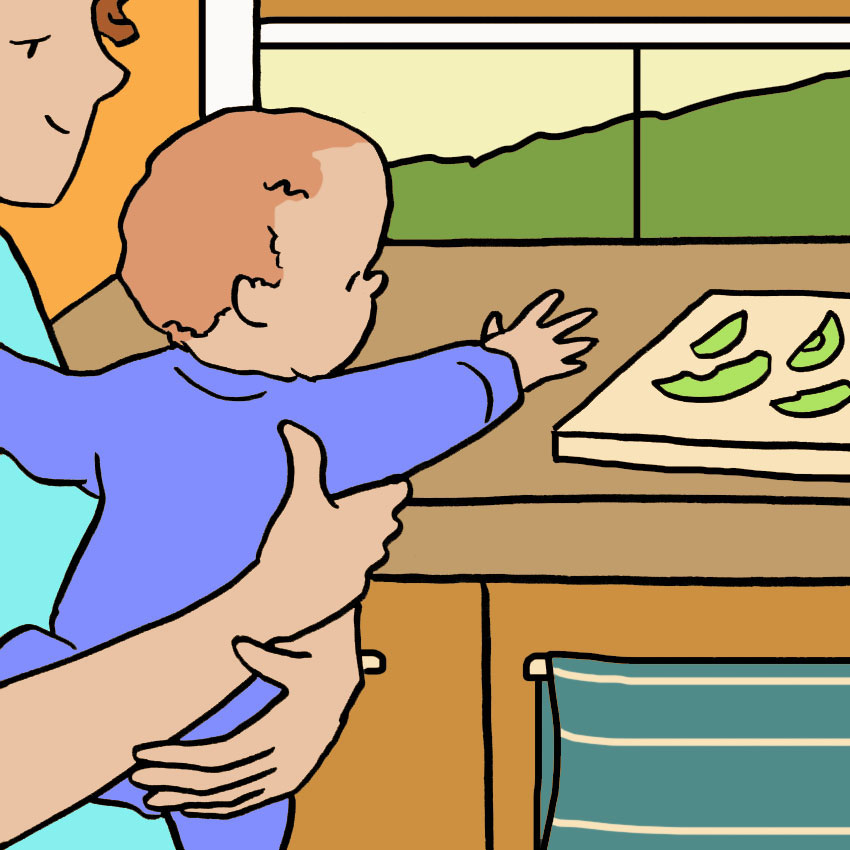
Not only can babies eat avocado, they should eat it! Many consider avocados to be the perfect first food for baby. According to the Academy of Nutrition and Dietetics, “Some easily tolerated first foods are iron-fortified infant rice or oatmeal cereal, pureed avocado, banana, sweet potato, carrots, pears or peas.”
The soft flesh of an avocado is one of the biggest reasons why it’s on the list — it can be prepared and served a variety of different ways, plus there’s little risk of choking.
When Can Babies Eat Avocado?
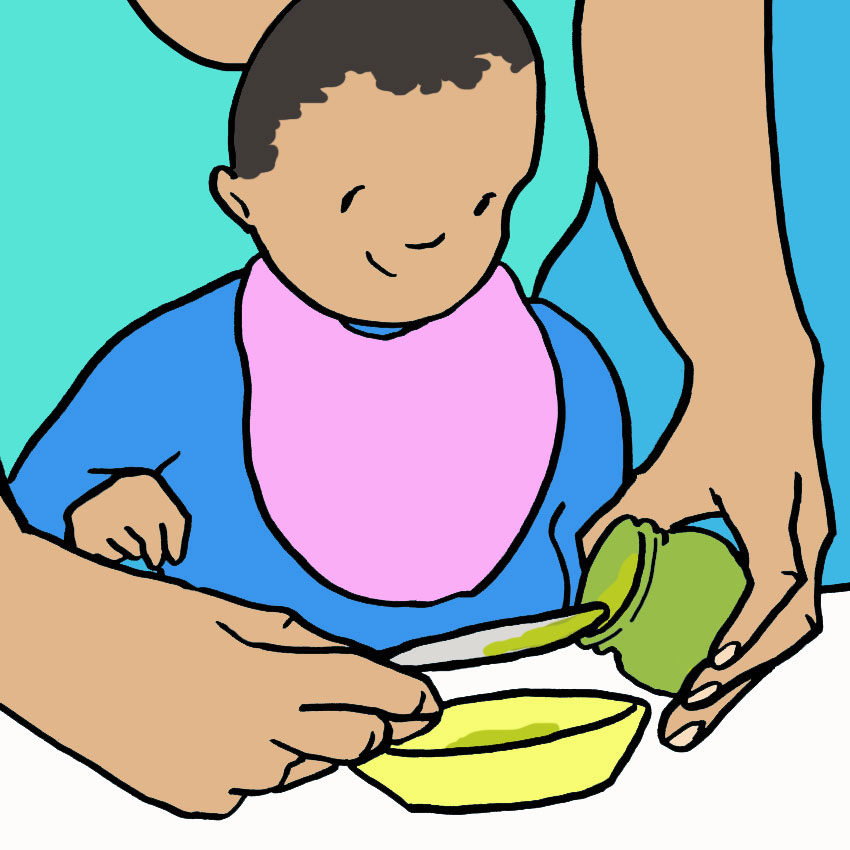
The American Academy of Pediatrics and most pediatricians recommend that parents wait until their baby is at least six months old before offering any sort of solid food. This serves two purposes: first, your baby needs to be ready to accept food, and second, breastmilk or formula should be his source of nutrition during the entire first year. As soon as baby shows he’s ready for food (he’ll show interest in your food, lose his tongue-thrust reflex, and have mastered sitting upright), you can start feeding him avocado baby food.
For a baby around six months who’s just starting solid food, avocados can easily be pureed and mixed with breastmilk or water. For slightly older babies, it can be mashed into a salt- and spice-free guacamole that’s slightly chunkier than a puree. And for babies ready to self-feed — around the age of one — avocado can be sliced and given to baby with little choking concerns.
Is Avocado Good For Babies?
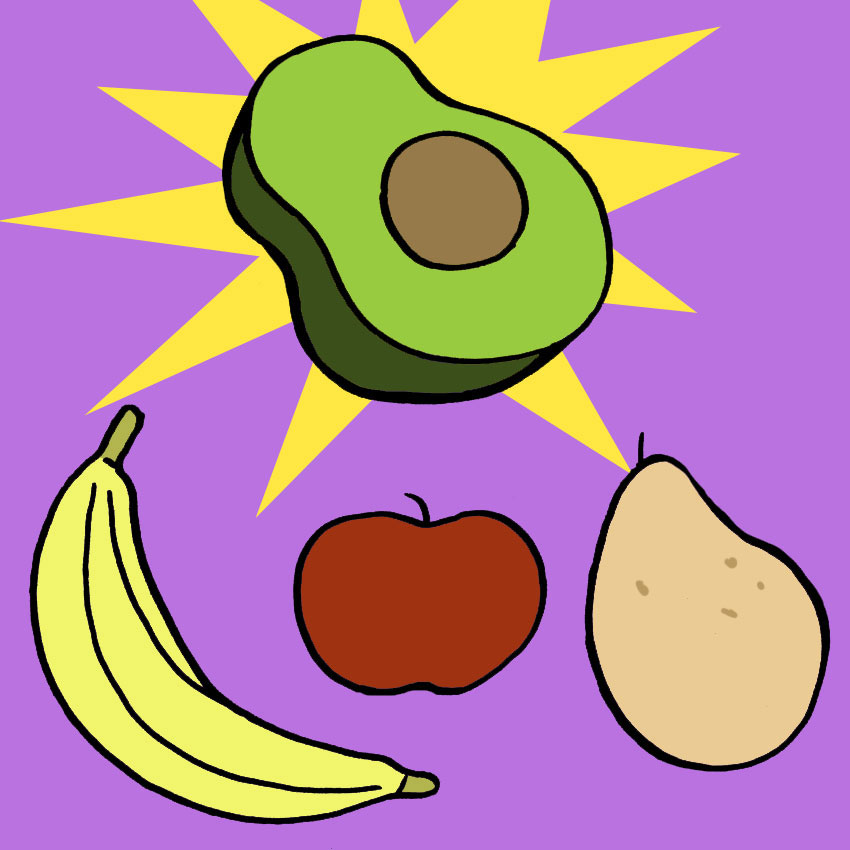
When it comes to avocado for your baby, you’ll be hard pressed to find anything better! According to avocadocentral.com, “Avocados contribute nearly 20 nutrients, including vitamins, minerals, dietary fiber and phytonutrients, that are important to infant and toddler nutrition.” In addition, the site maintains that “Avocados are sodium and cholesterol free, and they’re the fresh fruit with the least amount of sugar per serving.”
Along with this, Momtastic's Wholesome Baby Food blog asserts, "Per serving, avocados have 3.5 grams of unsaturated fats, which are known to be important for normal growth and development of the central nervous system and brain."
And don’t forget the convenience factor! Avocado is super simple to serve while you’re on the go, too! Just slice open an avocado and serve to your baby with a spoon.
How to Prepare Avocado For Babies At Different Ages
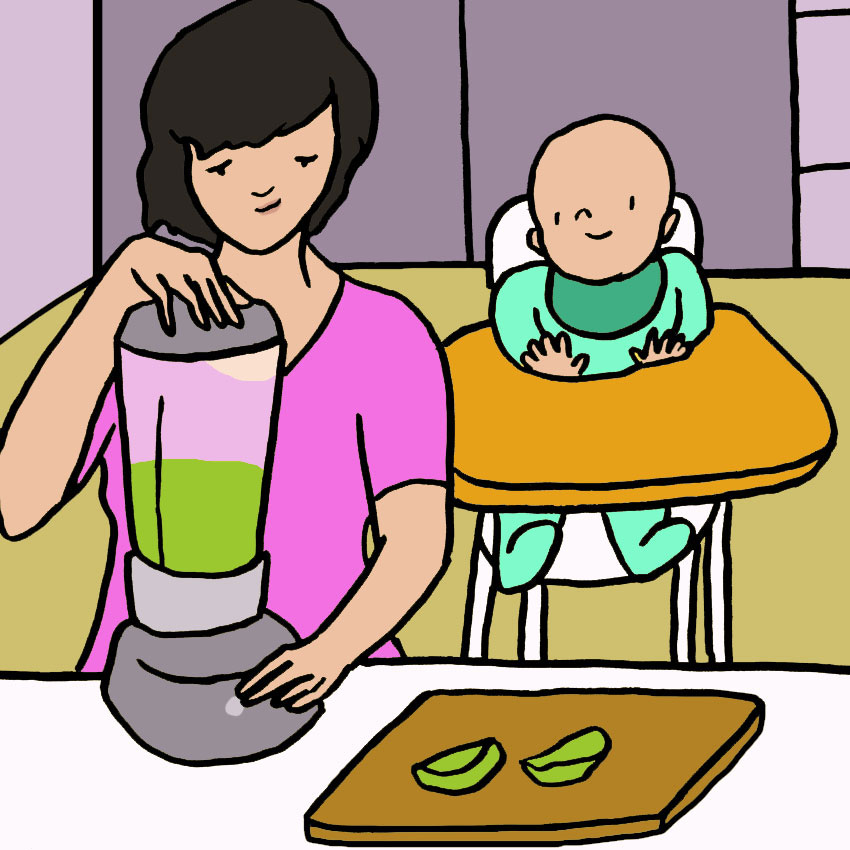
Avocado is great for babies of all ages, but in order to keep them interested and coming back for more, you may want to prepare it differently as your baby grows and develops. Here are some step-by-step guides for how to make avocado for babies, based on their age.
Age: 6 Months
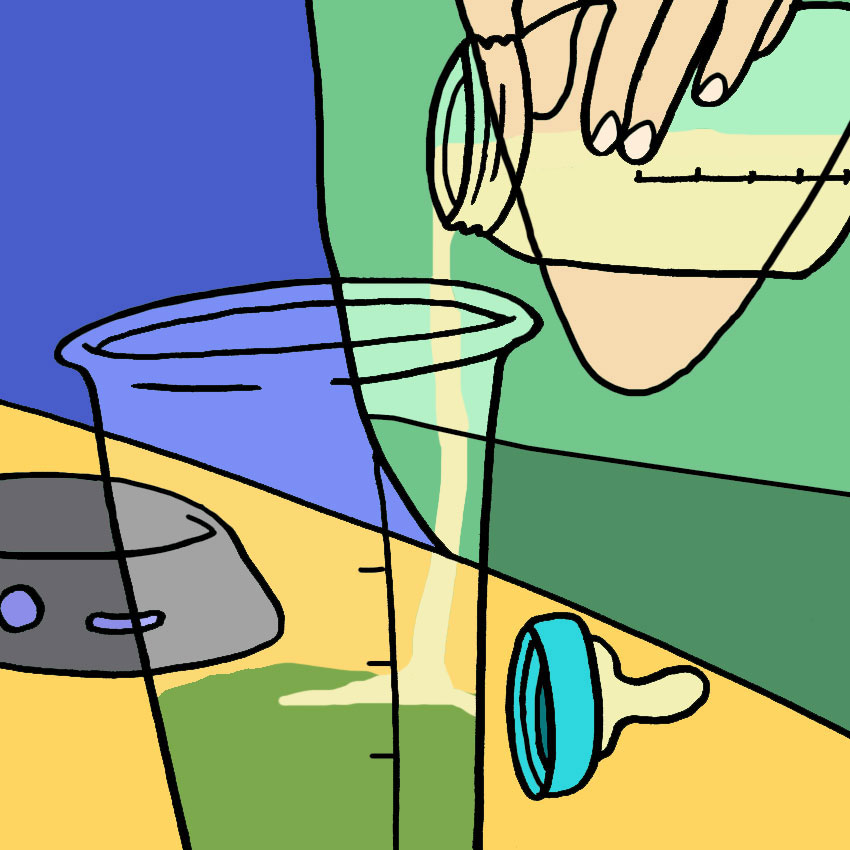
To make an avocado puree for baby, Parents.com suggests simply putting the fruit in a blender with a little bit of water or breastmilk and blending until it’s a thin consistency — similar to that of rice cereal. Once your baby accepts this and doesn’t show any signs of allergies (more on that later) you can add a myriad of other pureed fruits or veggies to the avocado. If you’re wondering what you can mix avocado with for baby food, great choices include apple, sweet potato, pear and banana.
Age: 7–9 Months
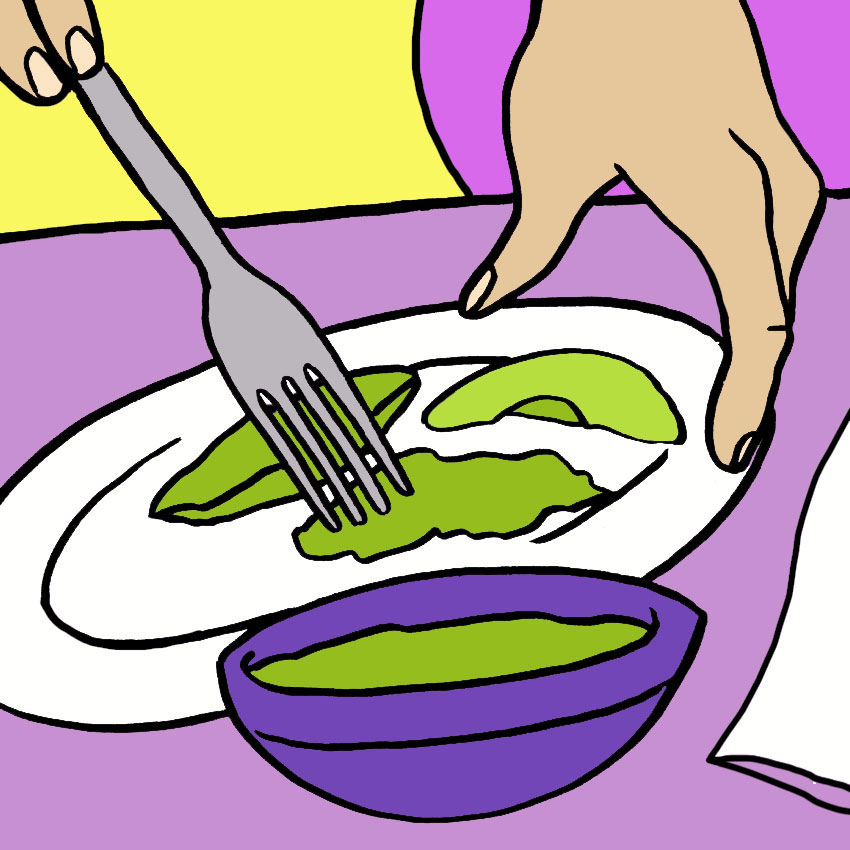
Once your baby is ready to move on to chunkier foods, you can remove the flesh of the avocado from the peel and simply mash it with a fork. You can feed this to your baby or you can whip up a baby-friendly guacamole as an avocado baby food recipe for a bit of added flavor.
Age: 9–12 Months
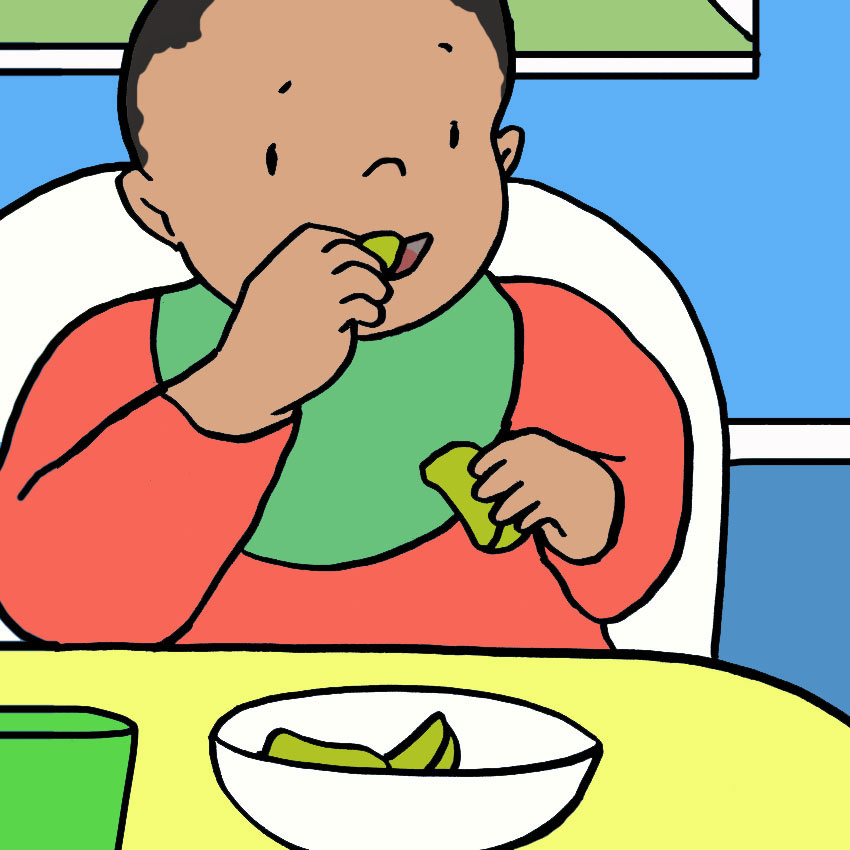
As your baby approaches her first birthday, she’s probably gearing up to handle this whole feeding thing “all by myself!” (a phrase you’ll hear countless times in the coming years). It turns out that avocados are pretty handy at this stage too</a>; simply cut into easy-to-handle slices and let baby go to town.
Age: 12+ Months
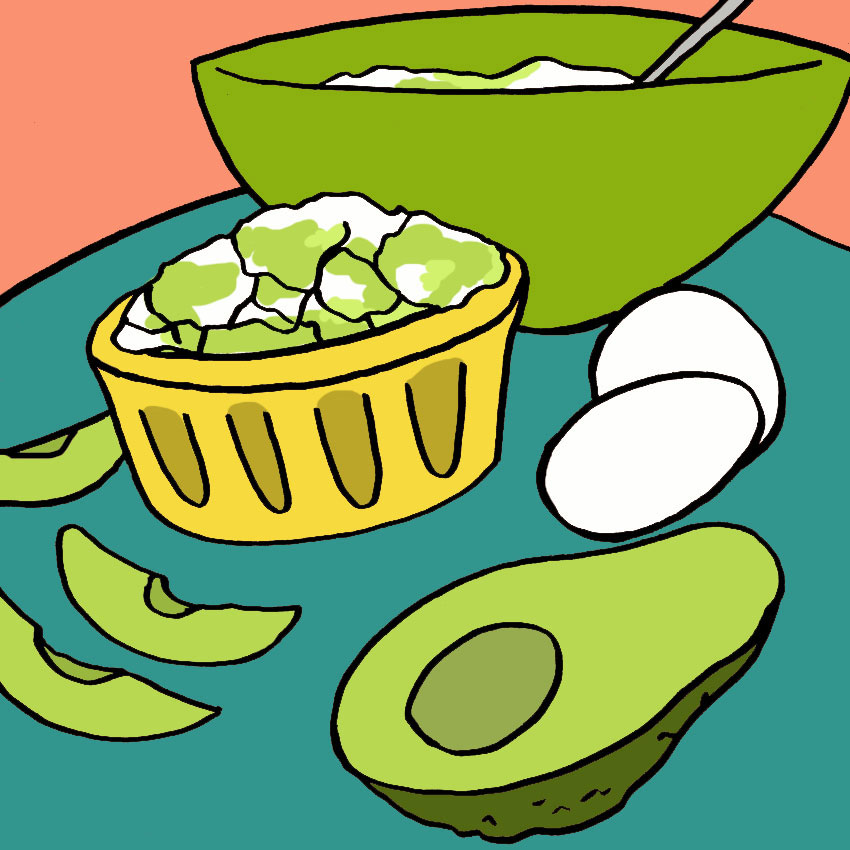
Now that your baby’s a veteran eater, your job is to ensure that she stays that way! Continue to incorporate avocado into her diet by serving it with chicken salad, as avocado egg salad, or even in a smoothie.
How to Freeze Pureed Avocado
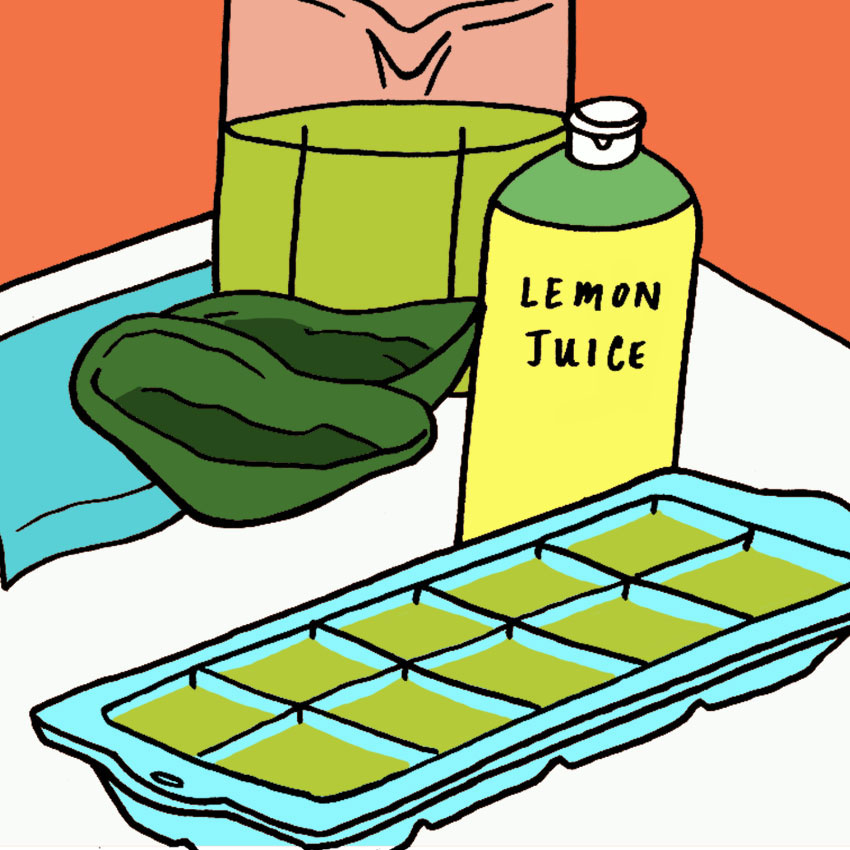
If you find that you’ve got a serious avocado eater on your hands, you may be wondering if you can freeze the fruit for later use. And we don’t blame you — after all, they can get pretty expensive! Luckily, the answer is yes. Here’s our guide to freezing pureed avocado baby food:
- Peel avocado and blend to desired consistency with usual amount of water or breastmilk
- Add a touch of lemon juice (this helps prevent the avocado from turning that nasty brown color, according to Wholesomebabyfood.)
- Freeze in ice cube trays or other small, individual-size portions
- To thaw, simply pop into a bowl and rest the bowl in a larger bowl of warm water.
Is Your Baby Allergic to Avocado?
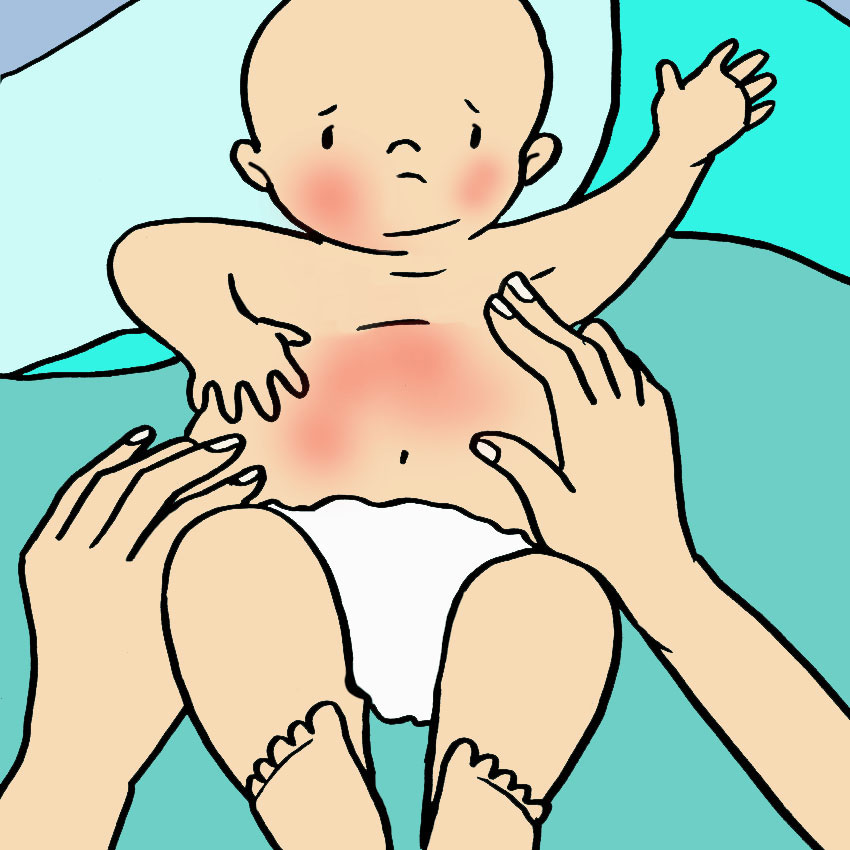
At this point, it may seem like it's hard to go wrong with avocados. After all, they're delicious, healthy, and easy to serve — what could be better? Perhaps nothing, but just like with any other food that you’re introducing to your baby for the first time, it’s wise to monitor for signs of an allergic reaction. Avocado allergy in babies isn’t common, but it can happen.
According to Sutter Health CPMC, signs of allergic reactions include breaking out into a rash, itchy skin, swelling of the mouth, lips, or tongue, and/or diarrhea. If any of these reactions occur, simply wait a few months and re-introduce avocado. Often, food sensitivities disappear as baby’s system becomes more developed. If symptoms persist or if you have serious cause to be concerned, visit your doctor.
Please SHARE this article with your friends on Facebook!




